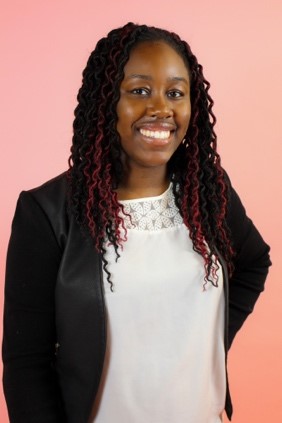American Psychological Association Division 50

I am a senior PhD Student in the Clinical Psychology program at Dalhousie University, located in Halifax, Nova Scotia, Canada. I am thankful to be supported by a Social Sciences and Humanities Research Council (SSHRC) Doctoral Scholarship, a Nova Scotia Research and Innovation Graduate Scholarship, and a Scotia Scholar’s Award from Research Nova Scotia. In 2020, along with my colleagues Dr. Martin Smith, Dr. Simon Sherry, Ms. Eleri McEachern, Dr. Kenneth Leonard, and my supervisor, Dr. Sherry Stewart, I published a paper in Psychology of Addictive Behaviors entitled “Relationships on the rocks: A meta-analysis of romantic partner effects on alcohol use” (link). This meta-analysis definitively showed that romantic partners significantly influence one other’s drinking over time. We also showed women partners to exert a stronger social influence than men. My meta-analysis highlights the importance of romantic relationships when considering the social context of drinking. It also validates involving couples in the assessment and treatment of problematic alcohol use. This research may be particularly important during the COVID19 pandemic. As co-habiting couples are inevitably spending more time together, and some may be drinking to cope with pandemic-related distress, it is possible that partners are influencing each other’s drinking to an even greater extent during these challenging times.
I am currently working on my doctoral dissertation, studying the potential differences in alcohol use consumption over time in immigrant youth and emerging adults of different generation statuses. For instance, new immigrants are susceptible to acculturation stress, which is a stress reaction in response to life events rooted in the experience of adapting to a new culture. Acculturation stress may impact the degree to which alcohol use becomes problematic. This work is important because adapting to a new culture may come with many challenges, including financial strain, social isolation, and discrimination, that may impact an individual’s alcohol use. Therefore, supporting immigrants and diverse peoples’ well-being may provide protection against risky alcohol use.
Ultimately, I hope my research supports policies aimed at improving the quality of life of immigrants. Considering the heavy economic, health, and social costs of problematic alcohol use, it is my goal that my research supports a holistic approach to prevention that includes consideration of immigration, culture, and race as important social determinants of health.
Outside of my research, I am passionate about increasing the presence of people from historically underrepresented groups in all levels of psychology, including undergraduate and graduate students. I have presented at a forum on the mental health impacts of racism in academia (link) and I provide mentorship to a group of Black students interested in mental health and addiction careers. My work in supporting Equity, Diversity, and Inclusion initiatives and advocacy for student wellness were acknowledged when I received my department’s Clinical Student Citizenship Award.
I look forward to sharing the results of my research with the Division 50 membership. Thank you for reading!
Lydia Muyingo
Lydia.Muyingo@dal.ca
In this column, we are looking to highlight recently published work or accomplishments by members from backgrounds that are underrepresented in psychological science. We are also interested in promoting research focusing on improving health equity and social justice in historically disadvantaged groups. Send us a link and description of your current projects, awards, or media attention you have received, and any other information that you would like to share with our readers. If you are discussing research focused on improving health equity and social justice, you can also provide additional information about the implications of your research. Please limit responses to 500 words and send to dana.litt@unthsc.edu by June 1, 2021.

Resources are available for those struggling with addiction and numerous effective treatments exist. Whether you are looking for help for yourself or a loved one, we encourage you to seek out help.